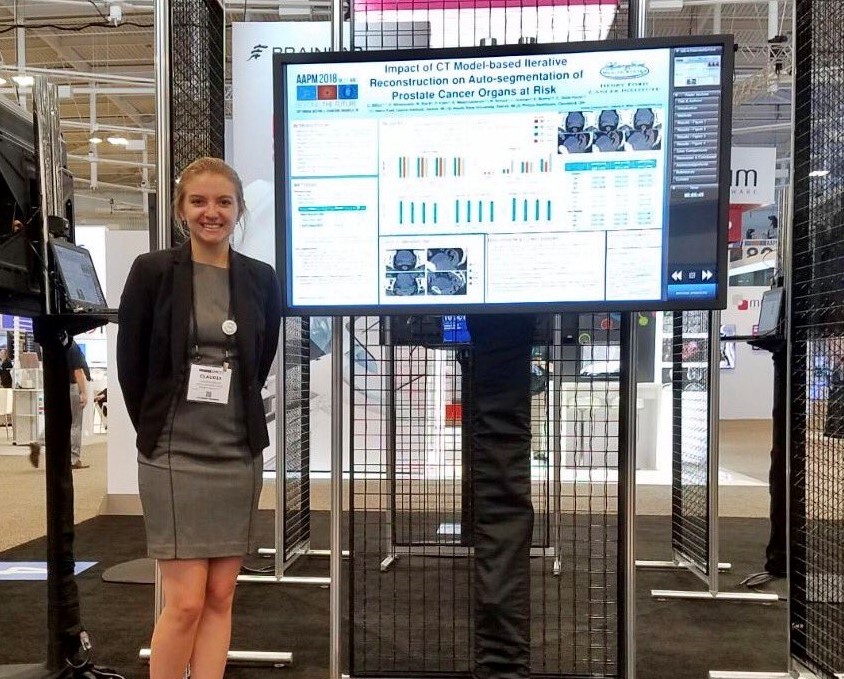Biomedical engineering major advances CT scan technology through AAPM DREAM Fellowship

Claudia Miller, a biomedical engineering major entering her sophomore year this fall, received one of five available DREAM Fellowships from the American Association of Physicists in Medicine (AAPM). The program, which is usually only offered to students entering their junior or senior year, aims to provide mentorship and outreach to minorities in medical physics. Miller was matched with Dr. Carri Glide-Hurst, an adjunct professor in the School of Medicine at Wayne State and the director of translational research in radiation oncology at Henry Ford Hospital.
"I chose biomedical engineering because I want to help improve the quality of patient care and the quality of life for people suffering with cancer and other diseases," Miller said. "Working with Dr. Glide-Hurst has been great. I've learned so much, and it has only made me want to go deeper into biomedical engineering and medical physics."
During the 10-week program, Miller conducted research focused on how CT scan image reconstruction affects radiotherapy treatment planning tasks. The model-based iterative reconstruction (MBIR) she used is an advanced algorithm that can help improve the image quality of CT scans and reduce patients' exposure to radiation. Miller tested and compared nine different levels of the MBIR with filtered black projection, which is known as the "gold standard" of reconstruction algorithms.
Miller presented this research at the 2018 AAPM annual meeting, where she received feedback on her work from industry professionals. Currently, Miller and Glide-Hurst are working to publish a paper on the topic.
"It has been great, as a sophomore in my undergrad, to talk to individuals with doctorates and master's degrees in my field," said Miller. "It is amazing to get their feedback and see how I can apply it to my future research."
Miller hopes to participate in the College of Engineering's AGRADE program and pursue a Ph.D. AGRADE is an accelerated plan of coursework that allows students to receive credit towards their bachelor's and master's degrees simultaneously.